Jarvis Estate Winery
2970 Monticello Rd, Napa, CA 94558
707-255-5280
www.jarviswines.com
Fri 07/26/2024, 01:10p-03:00p
![Jarvis Estate Entrance]()
After finishing up with our tasting at Palmaz, we immediately headed north to Jarvis Estate, a winery probably most known for being built completely underground, occupying 45,000 square-feet of tunnels that were bored into the Vaca Mountains. The winery is the brainchild of William Jarvis (who made his fortune by founding electronics company Wiltron in 1960) and his wife Leticia Jarvis, who both delved into the world of wine after purchasing a weekend home in Napa. They acquired the winery's grounds in 1984 and saw their first harvest in 1988, which was overseen by the late Dimitri Tchelistcheff (son of the legendary André Tchelistcheff). Jarvis' first commercial release came in 1992, and the winery opened to the public in 1995. Tchelistcheff became full-time winemaker in 1994, a role he stayed at until 2009, when he transitioned to a consulting role. He was replaced by Ted Henry, who himself was superseded by Scott Morrison (William Harrison, Crossbarn, Paul Hobbs) at the start of 2016.
![Tour Guide]()
We were running slightly late, and thus had to catch up with guide Rob Runyon inside the winery's bottling room. The roughly 90-minute tour and tasting was priced at $150 a head.
![Cuve Gallery]()
![Curved Hall with Barrels]()
From the bottling room, we headed through the Cuve Gallery, a corridor filled with large French oak vats. Note also the parabolic shape of the tunnels, ostensibly designed for maximum strength.
![Crystal Chamber]()
![Large Amethyst Geodes]()
We then ventured into the so-called Crystal Chamber, lined with amethyst geodes.
![Barrel Chai]()
The Crystal Chamber is connected to the Barrel Chai, where Jarvis' Inner Circle Ball is held.
![Waterfall]()
And now we come to Jarvis' famed underground waterfall, which is fed by a natural spring and apparently helps maintain humidity levels.
![Barrel Hallway Towards Entrance]()
Wine is matured in new French oak barrels located throughout the cave's aging galleries.
![Tasting Room]()
![Cheese & Nuts]()
Located near the waterfall was the tasting room, where we'd be settling in for the rest of our time at Jarvis. Food offerings included a lush, creamy brie and a French goat's milk cheese, along with Marcona almonds, dried Bing cherries, and crackers (not pictured).
![Wine Tasting]()
We were provided six wines to sample, plus two extra pours not listed on the tasting sheet. Going from left to right:![Bottle List]()
Here we see the list of bottles available for purchase, and I ended up getting a 2016 Cabernet Sauvignon Vintage Selection Lot 62 [$280]. Click for a larger version.
![Membership Form]()
![Membership Form]()
Finally, we have the Inner Circle membership materials. Click for larger versions.
2970 Monticello Rd, Napa, CA 94558
707-255-5280
www.jarviswines.com
Fri 07/26/2024, 01:10p-03:00p
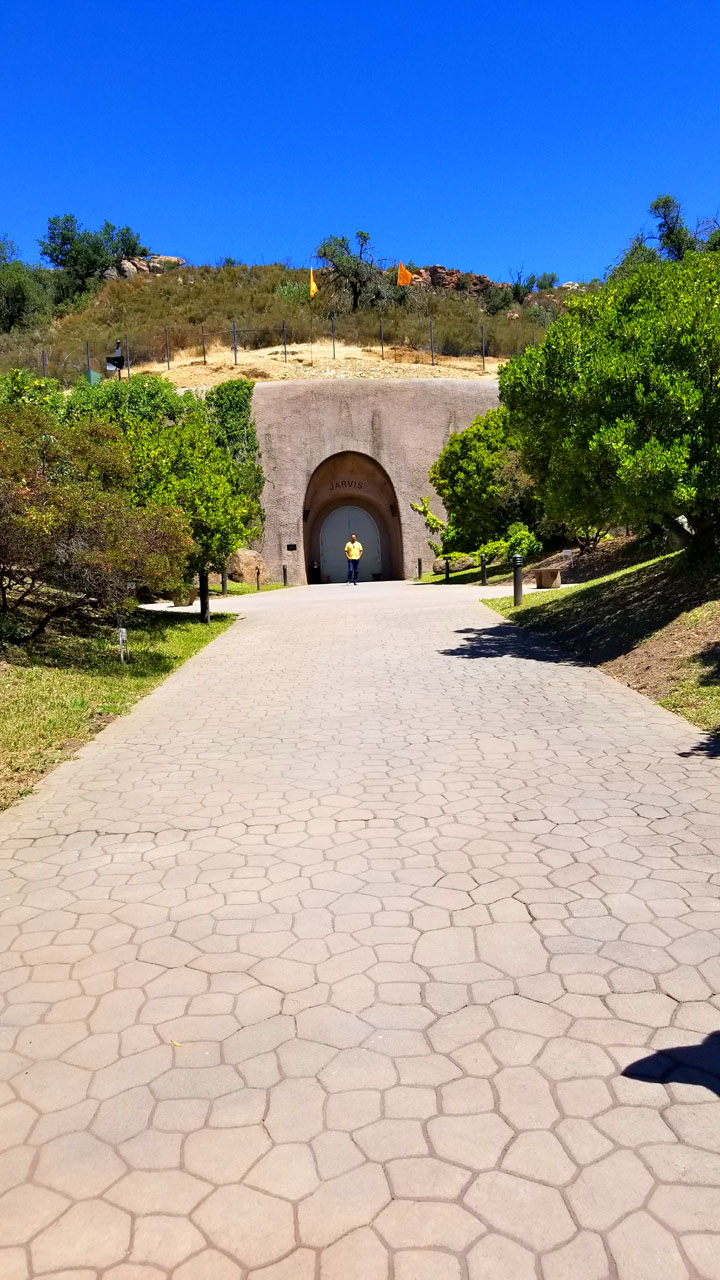
After finishing up with our tasting at Palmaz, we immediately headed north to Jarvis Estate, a winery probably most known for being built completely underground, occupying 45,000 square-feet of tunnels that were bored into the Vaca Mountains. The winery is the brainchild of William Jarvis (who made his fortune by founding electronics company Wiltron in 1960) and his wife Leticia Jarvis, who both delved into the world of wine after purchasing a weekend home in Napa. They acquired the winery's grounds in 1984 and saw their first harvest in 1988, which was overseen by the late Dimitri Tchelistcheff (son of the legendary André Tchelistcheff). Jarvis' first commercial release came in 1992, and the winery opened to the public in 1995. Tchelistcheff became full-time winemaker in 1994, a role he stayed at until 2009, when he transitioned to a consulting role. He was replaced by Ted Henry, who himself was superseded by Scott Morrison (William Harrison, Crossbarn, Paul Hobbs) at the start of 2016.
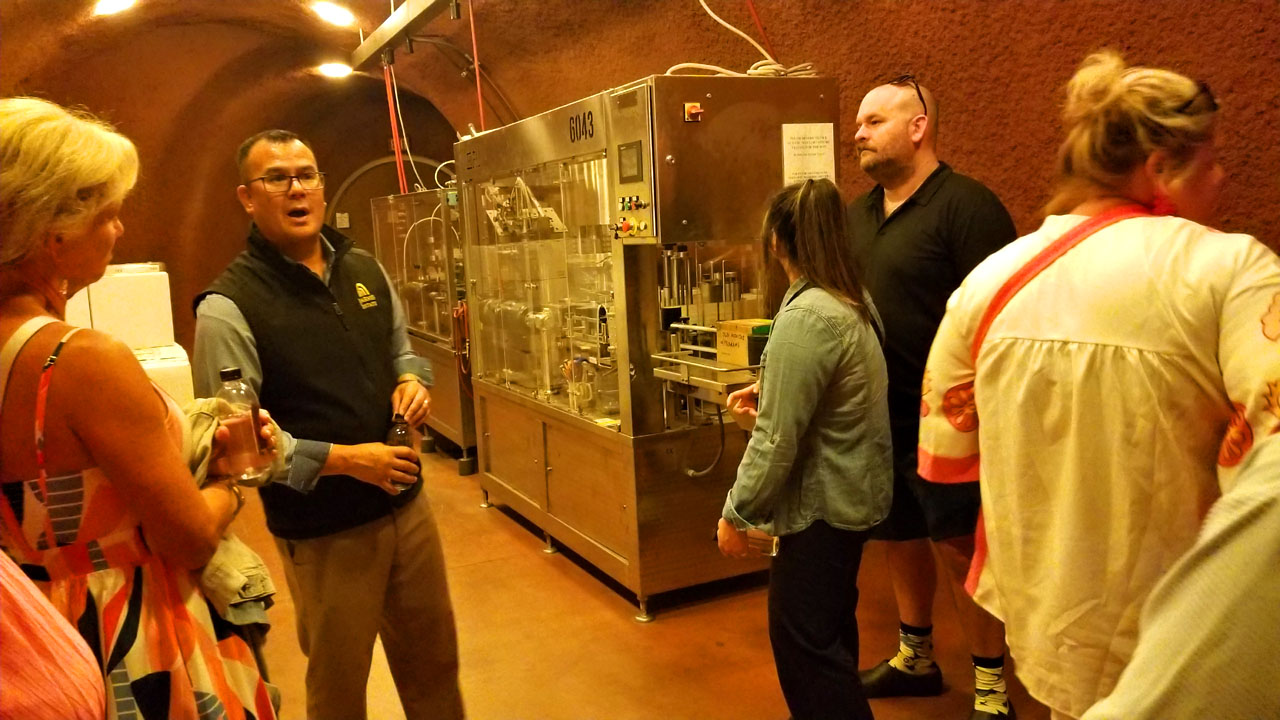
We were running slightly late, and thus had to catch up with guide Rob Runyon inside the winery's bottling room. The roughly 90-minute tour and tasting was priced at $150 a head.
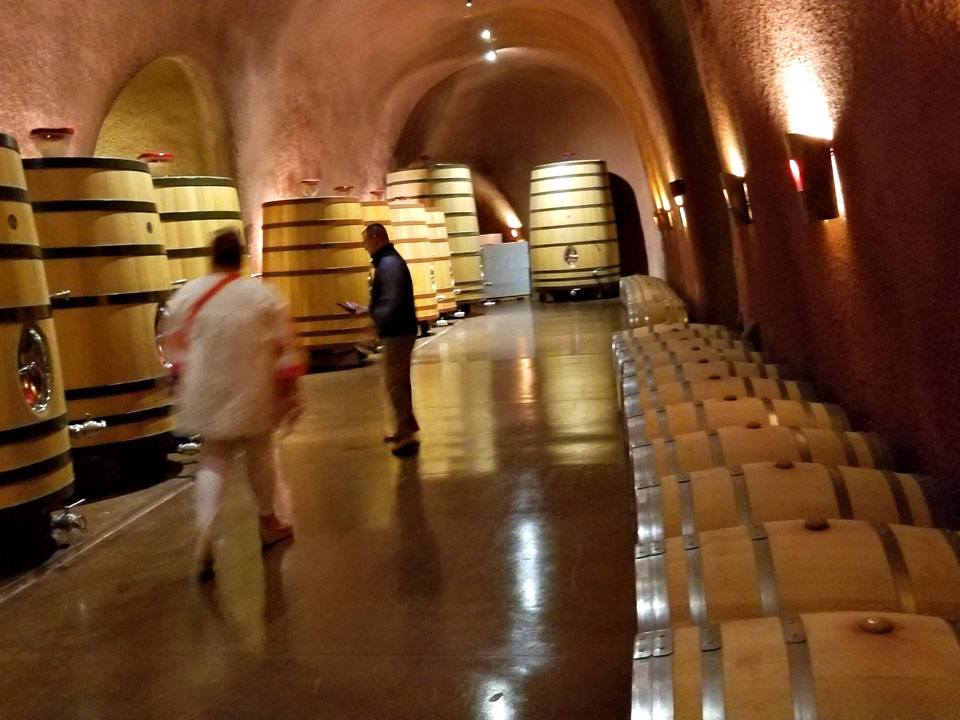
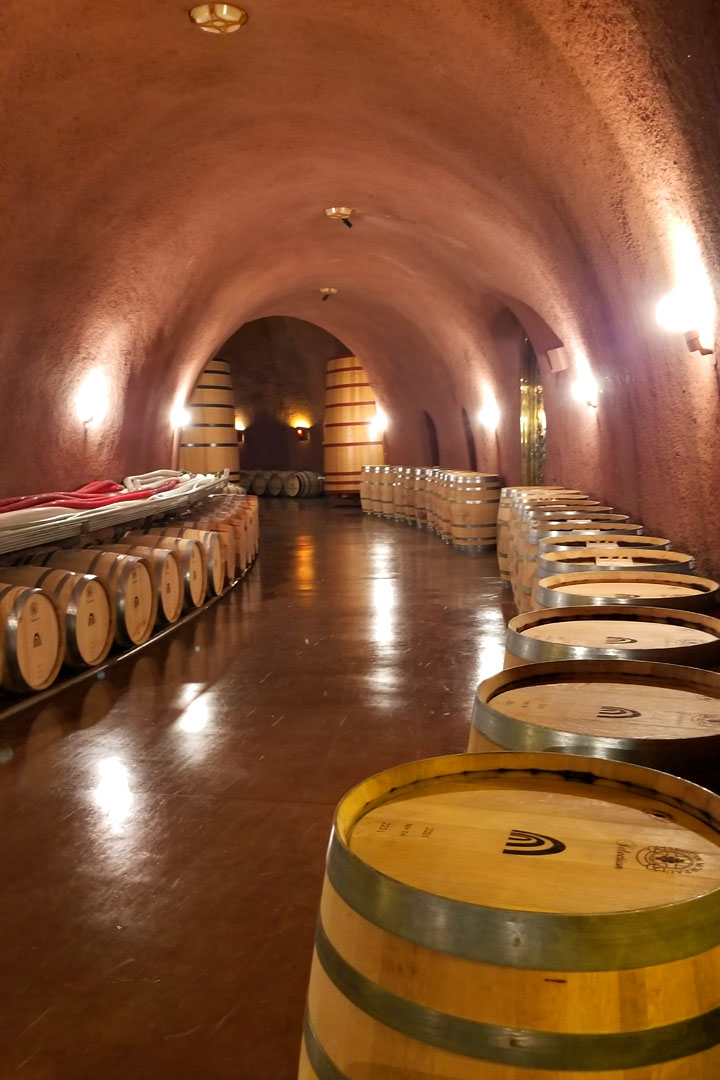
From the bottling room, we headed through the Cuve Gallery, a corridor filled with large French oak vats. Note also the parabolic shape of the tunnels, ostensibly designed for maximum strength.
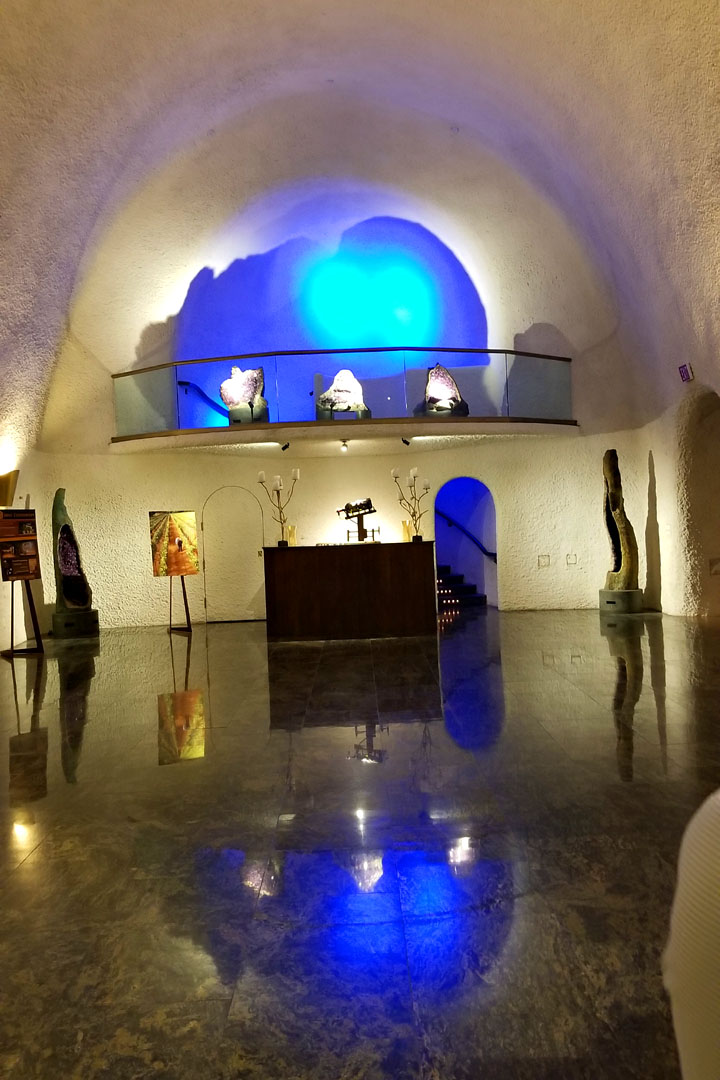
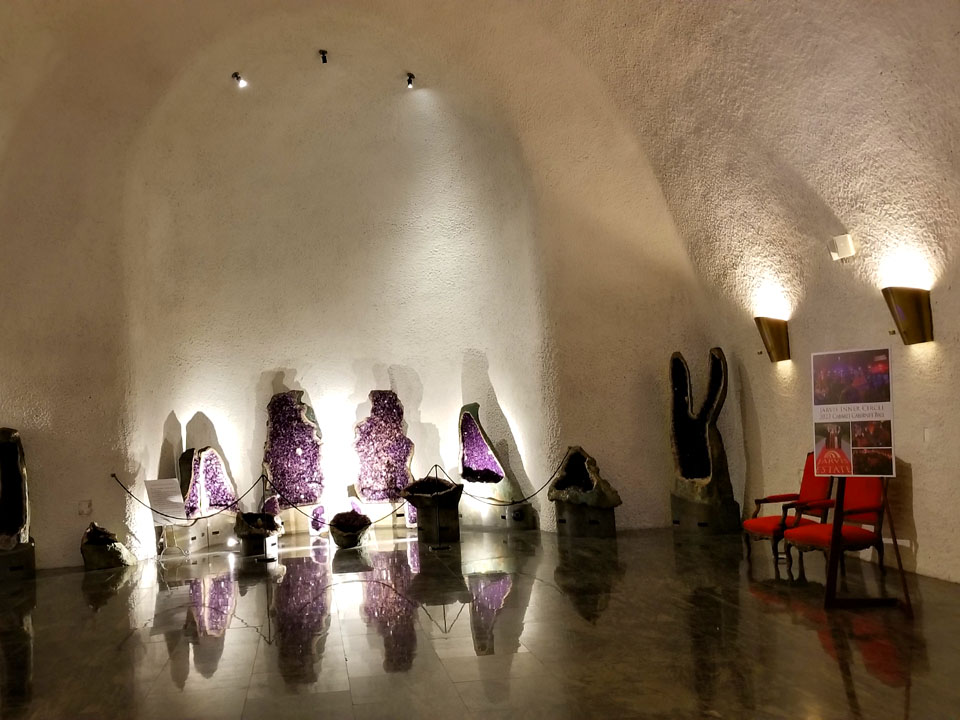
We then ventured into the so-called Crystal Chamber, lined with amethyst geodes.

The Crystal Chamber is connected to the Barrel Chai, where Jarvis' Inner Circle Ball is held.
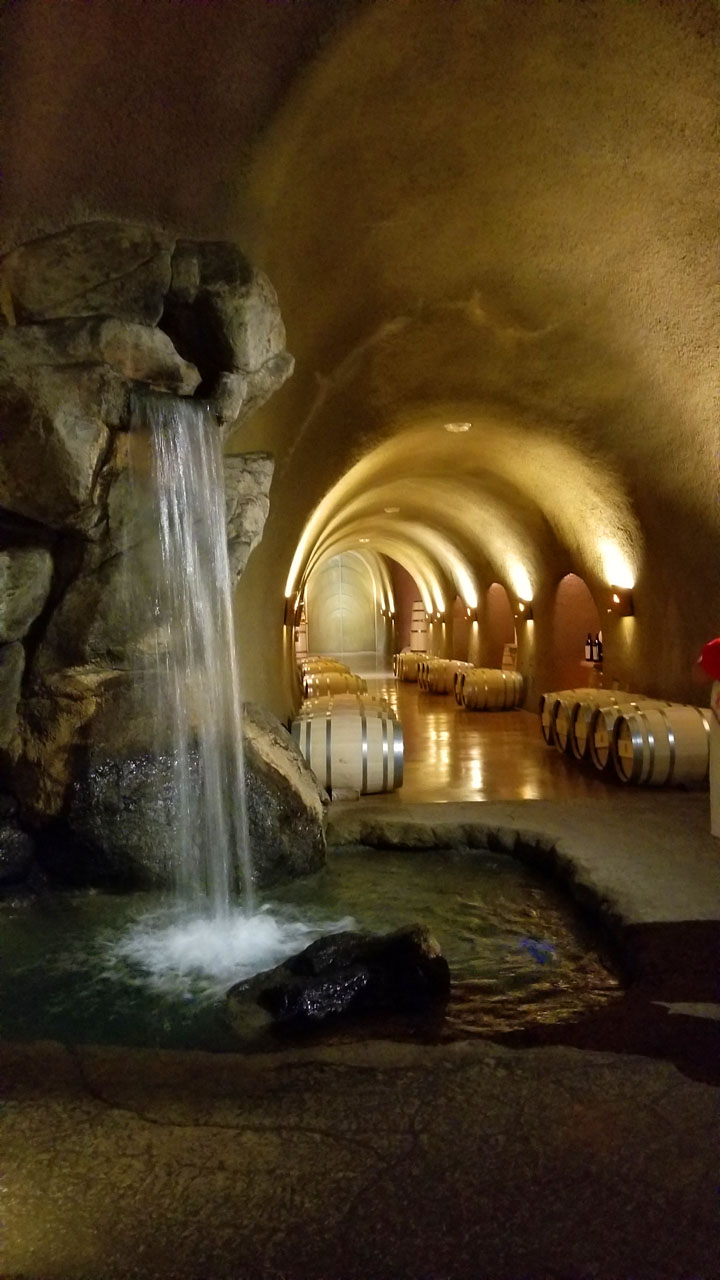
And now we come to Jarvis' famed underground waterfall, which is fed by a natural spring and apparently helps maintain humidity levels.
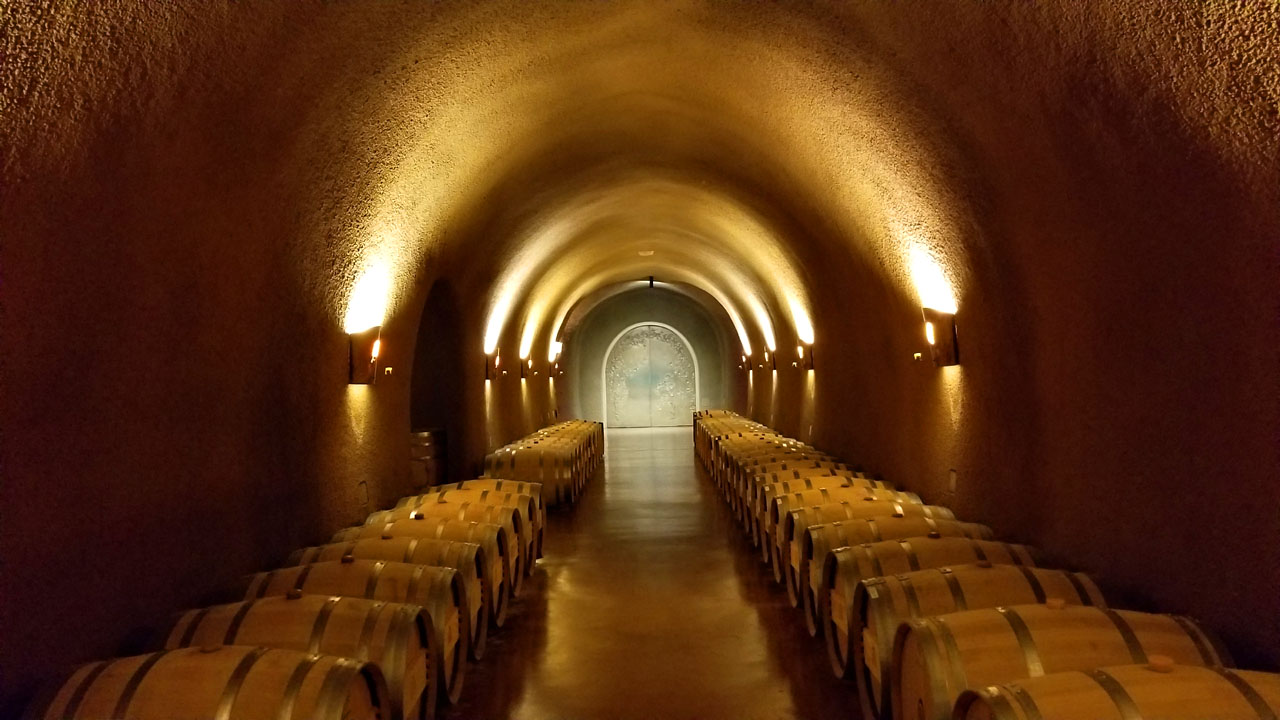
Wine is matured in new French oak barrels located throughout the cave's aging galleries.
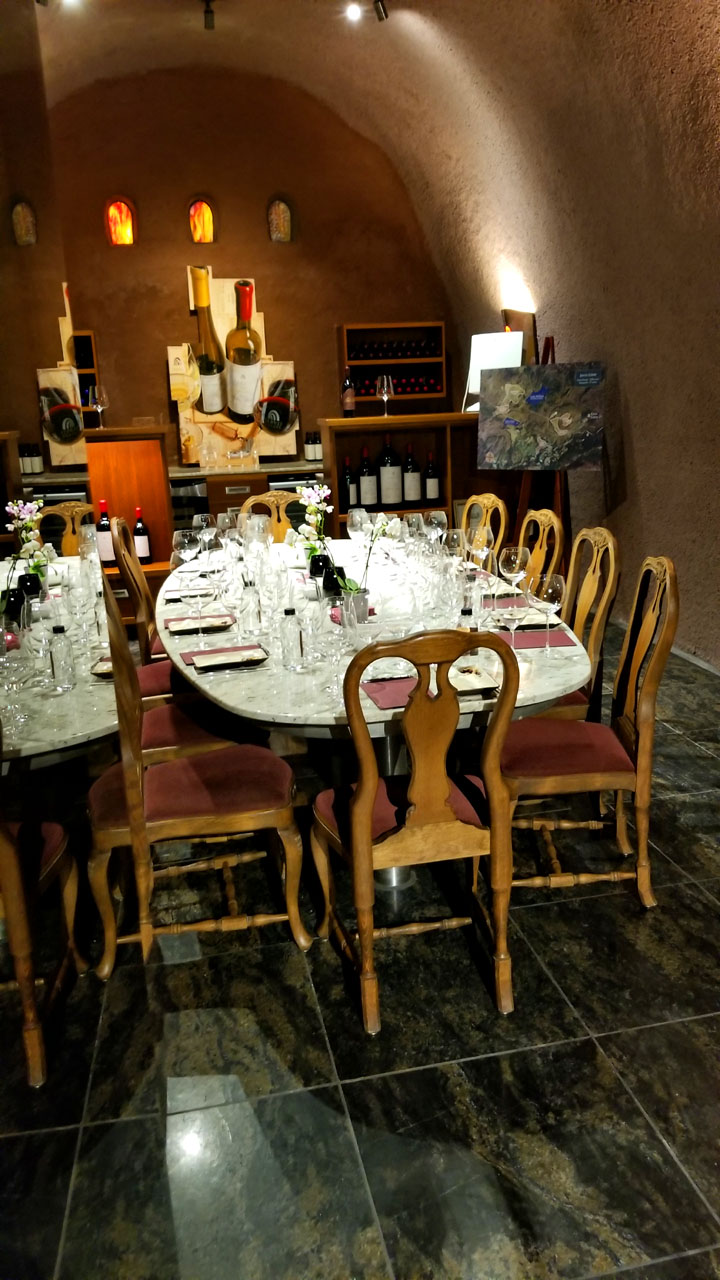
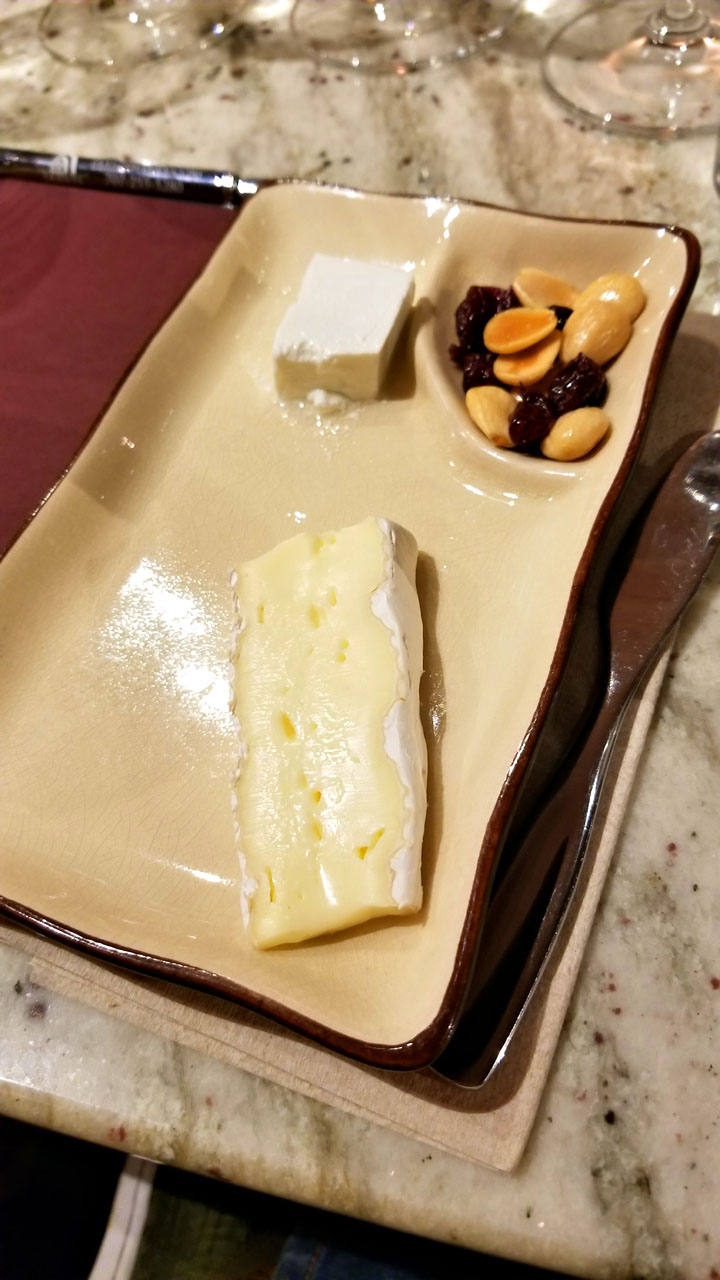
Located near the waterfall was the tasting room, where we'd be settling in for the rest of our time at Jarvis. Food offerings included a lush, creamy brie and a French goat's milk cheese, along with Marcona almonds, dried Bing cherries, and crackers (not pictured).
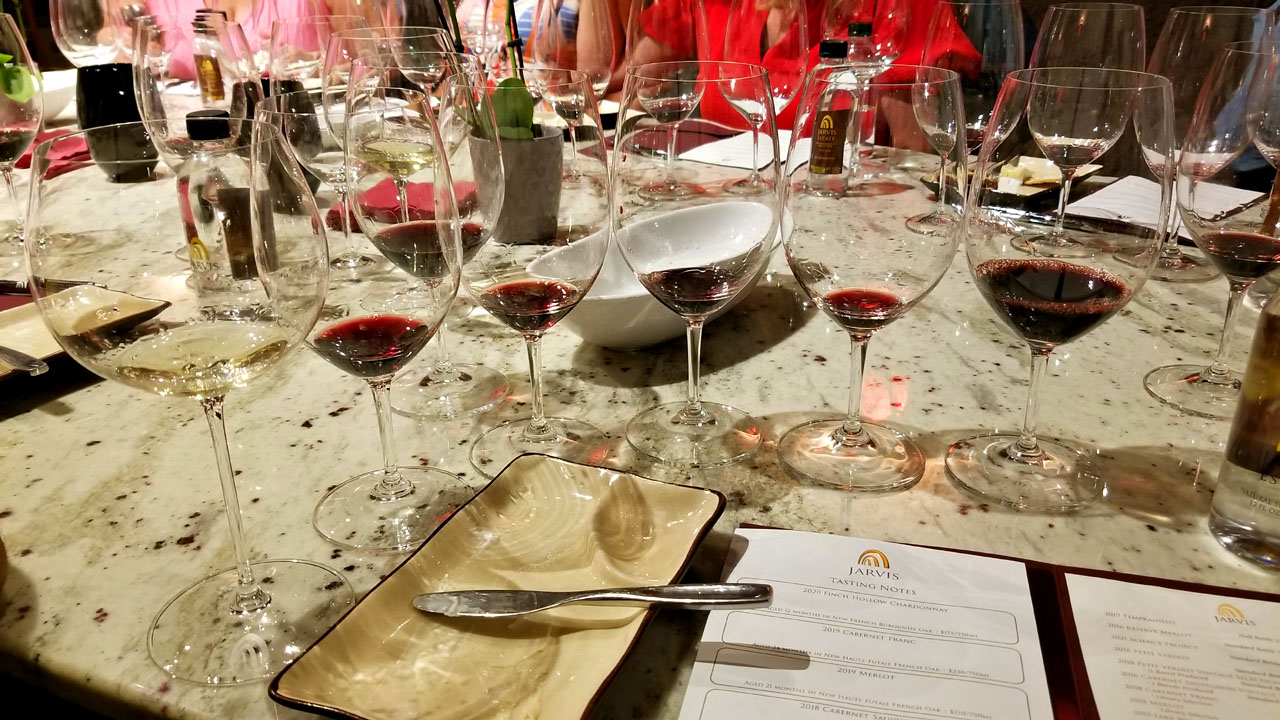
We were provided six wines to sample, plus two extra pours not listed on the tasting sheet. Going from left to right:
- 2020 Finch Hollow Chardonnay– The lone white wine of the group showcased a nose filled with buttered brioche and grassiness, with a bit of smoky crème brûlée coming in later, while taste-wise, I found plenty of orchard fruits and light tropical notes, countered by zippy spices.
- 2019 Cabernet Franc– Super perfume-y bouquet on this one, but tinged with peppery spice. On the palate, bright red fruits were juxtaposed against stout tannins and sundry herbaceous elements.
- 2019 Merlot– Aromas were of dark fruit intertwined with herbal, astringent notes. Taking a sip, I found more of the same fruit, but supported by a sturdy undercurrent of dark-toned sweetness that definitely made itself known.
- 2018 Cabernet Sauvignon– Not too surprisingly, the nose was all about dark berried fruits combined with leather and minty herbs. In terms of taste, I got more of those black fruits, but in a sweeter presentation and melded with cacao-like components.
- 2018 Lake William– An assemblage of 38% Cabernet Sauvignon, 30% Cabernet Franc, 30% Merlot, and 2% Petit Verdot, this Bordeaux-style blend smelled remarkably of black cherry ice cream. On the palate, the wine was the earthiest of the bunch, bringing forth more of those dark berry flavors in a multifaceted, mature manner.
- 2013 Reserve Cabernet Sauvignon– The oldest wine today, this one featured a bouquet that recalled cherry-topped chocolate ice cream. Palate-wise, there were surprisingly muscular tannins alongside mature black fruit and distinct accents of anise.
- 2020 Tempranillo– Our first "bonus" wine smelled of dark, sticky berries commingled with sweet herbs. It was also on the creamier side in terms of mouthfeel, its cool, black fruit flavors perked up by woodsy spices and a surprisingly potent heat.
- 2021 Science Project– Composed of 95% Cabernet Franc and 5% Merlot, our final wine showed off jammy, fig-like fruit tinted with sweet spice. Taking a sip, I discovered an ice cream-like quality that I didn't mind at all, along with more of those lush fruits.
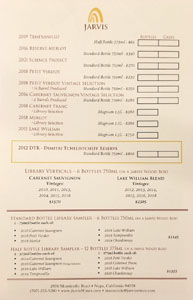
Here we see the list of bottles available for purchase, and I ended up getting a 2016 Cabernet Sauvignon Vintage Selection Lot 62 [$280]. Click for a larger version.
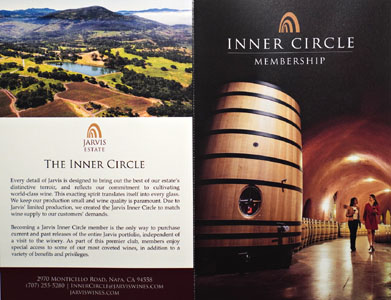
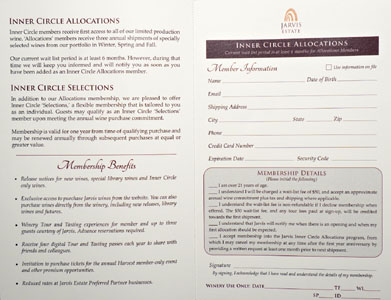
Finally, we have the Inner Circle membership materials. Click for larger versions.